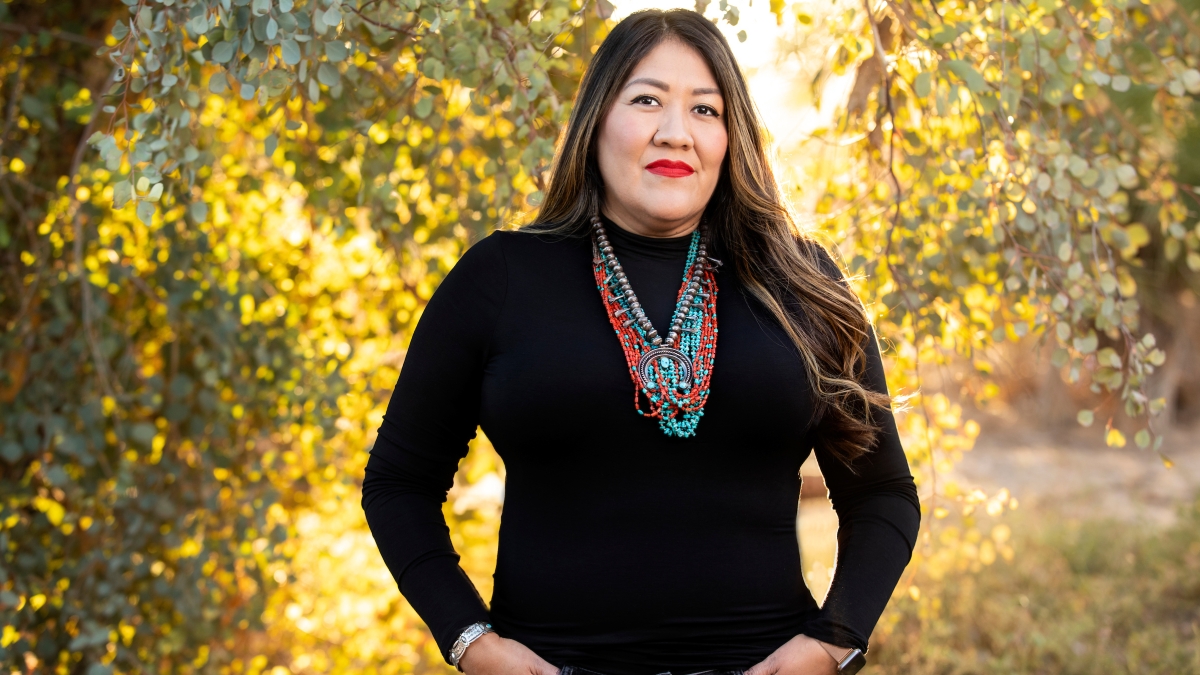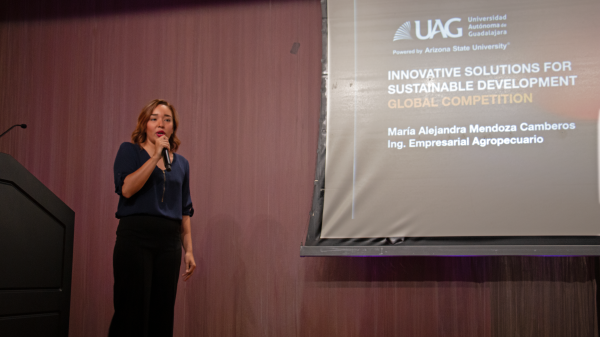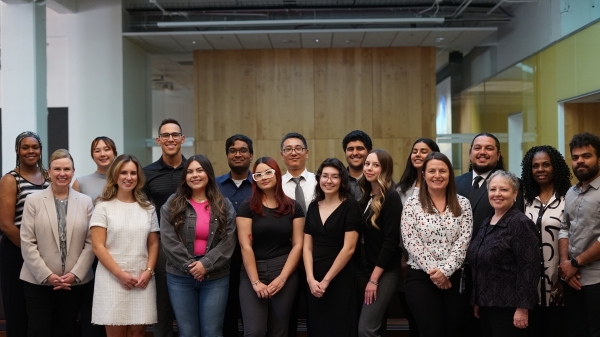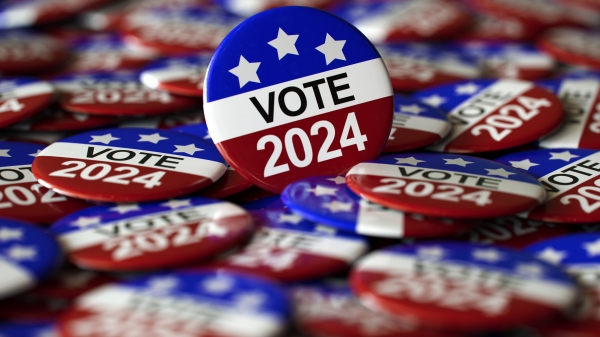ASU education professor to speak about the power of stories at the White House

Photo by Deanna Dent/Arizona State University
About a month ago, Amanda R. Tachine was about to delete an email from an unrecognizable sender because she thought it was spam.
Thankfully, she didn’t.
Turns out it was an official invitation from U.S. Secretary of Education Miguel Cardona, summoning her to Washington, D.C.
An assistant professor in the Mary Lou Fulton Teachers College and an enrolled member of the Navajo Nation, Tachine will speak at the “Cultivating Possibilities: White House Youth Policy Summit 2024” on Feb. 13.
The one-day summit will build conversations around federal policies and programs, and their intersection with developmental goals in adolescence and youth. The event will also include plenary and interactive working sessions, spoken word demonstrations and music.
Tachine’s research centers on exploring college access and persistence among Indigenous college students, using qualitative Indigenous research methodologies. She plans on introducing these ideas to the White House.
ASU News spoke to Tachine ahead of the event.
Note: Answers have been edited lightly for length and clarity.
Question: What was your reaction when you received an invitation to the White House Youth Policy Summit?
Answer: I was shocked and had to double take when reading the email, but it was legit. I was overwhelmingly honored and immediately shared the news with my family.
You know, it’s truly beautiful to be alongside our remarkable youth and to learn and think with them on what we need to do better as a country in serving and supporting their lives. Doing work in service for our beautiful futures is serious and sacred.
Q: The summit will be featuring educators and people connected to youth issues. What will your main message be?
A: I’ve been asked to talk about storytelling and about knowledge systems that are often not considered in large discourse, especially when it comes to policy. ... Stories are a form of rigorous and legitimate knowledge that should inform policy.
Often, when we think about policy, we think about big data and we think about measurable outcomes — this is especially true as it pertains to education and health, for example. Now, those forms of knowledge are important aspects to help make decisions to challenges and issues and to inform policies that advance solutions. Yet, stories are just as valuable.
So, I am going to address the value of storying and storytelling that allows us to get a deeper understanding of the experiences, histories and sociopolitical context that influence youth in this country. ... I think we are all storytellers and have a story to tell, and it’s important that policies take into account all of these varied stories, especially when it comes to making decisions for futures.
Q: What are some issues that youth are dealing with today that most are not aware of?
A: I think we like to say or think that we are not aware of issues that our youth are facing, but if we were to pay attention to their presences, we would come to terms that we do know and that we must do better in support of their beautiful lives and futures.
I’ve been disheartened by the ways our country is shaping conceptions of belonging. ... We are shaping belonging in specific ways that silence experiences, overshadow certain histories and exclude vulnerable ways of knowing/being. We are then creating environments where our young people doubt themselves, second-guess their sense of self and internalize harm.
We must do better at conceptions and conditions of belonging that allow for the abundance of knowledges and wisdom that our youth brings from their families, communities and place/land.
Q: What are some admirable traits that youth possess that often get overlooked?
A: There is so much I admire in them! They are beautiful and brilliant, and our futures. We can learn a lot from them as they carry much wisdom. ... They have a deeper awareness of how we should treat each other. We get stuck in our ways when we get older, but young people, they are full of vibrant knowledge of holding contradictions in one hand at the same time.
They have wisdom to help us see each other in ways that are loving and kind. They are reshaping belonging in profound ways, and we should pay more attention to their wisdom and intellect.
More Local, national and global affairs

Student from ASU partner university aims to revolutionize agricultural industry with sustainable livestock feed
This summer, Arizona State University hosted the final round of the third annual Cintana Education Global Competition.This yearly pitch competition for student entrepreneurs from ASU's global partner…

County government leadership internship prepares ASU graduates for rewarding public service careers
A local government leadership program at Arizona State University is celebrating a decade of helping aspiring public service professionals take the “leap” into their chosen careers. The Maricopa…

Arizona PBS, Center for the Future of Arizona partner to educate voters ahead of November election
Arizona PBS and the Center for the Future of Arizona have partnered to educate voters ahead of the general election, taking place this fall.“Voter Ed,” a five-episode, digital-first series will give…